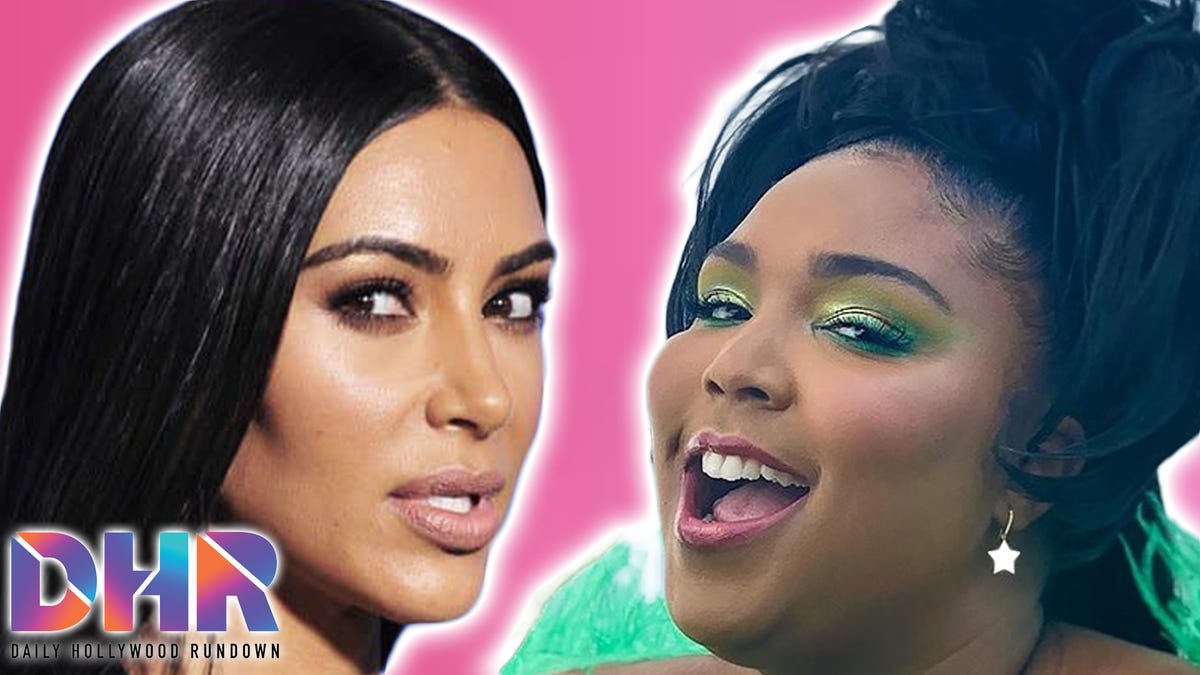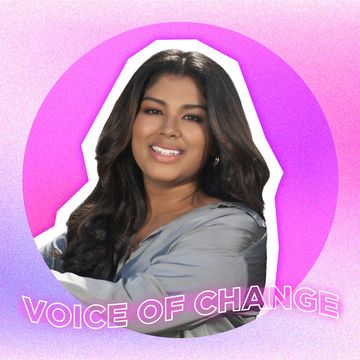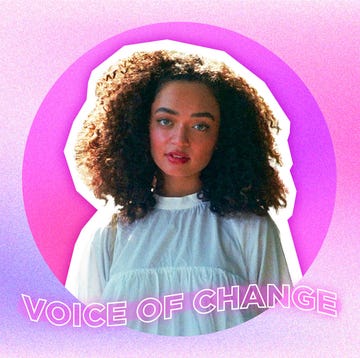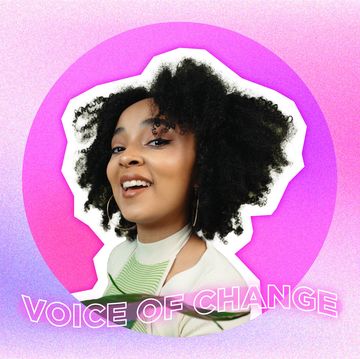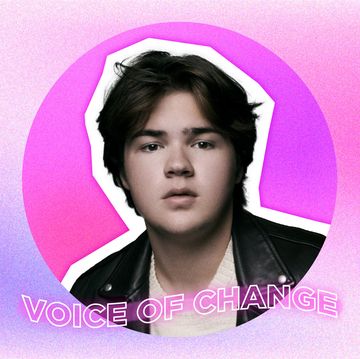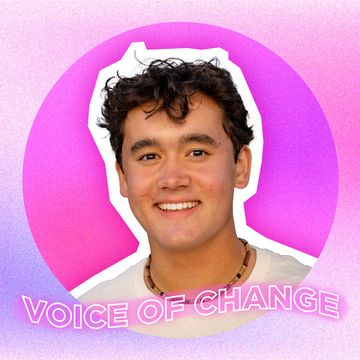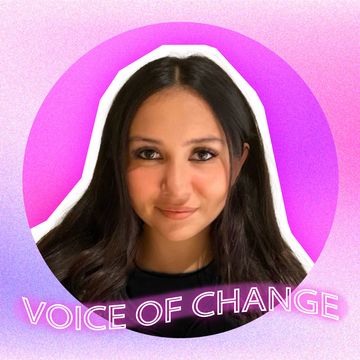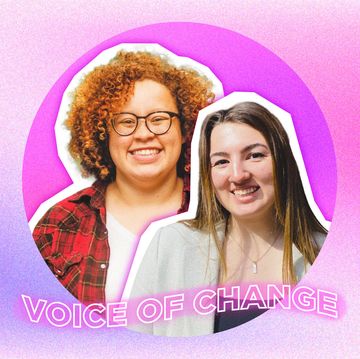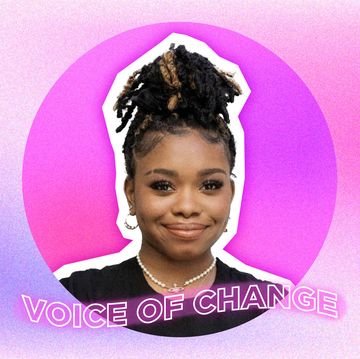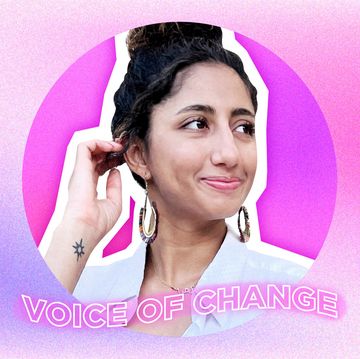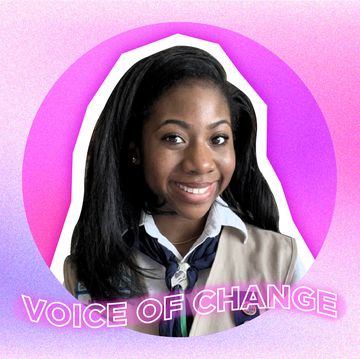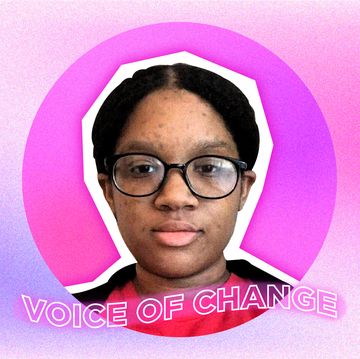When Isabel Mavrides-Calderón became disabled at 11 years old from a spinal cord injury, she said she was “really angry” at herself. “Whenever I faced a barrier, I would blame my body,” she tells Seventeen. “I had a lot of internalized ableism. I thought that in order for me to have full access to opportunities to thrive, I would need to be fixed or cured, which obviously wasn’t going to happen.” But soon, she discovered the glaring inequalities and discrimination that disabled people face on a daily basis.
“I realized that my body wasn’t the barrier, society was,” Isabel says. “It made me question, ‘Why don’t we just always have accessibility and accommodations?’” So she got to work, intersecting her advocacy with her experiences as a disabled Latina.
As a freshman in high school, Isabel researched the local, national, and international policies set in place for disabled people. She educated herself on the existing protections, or lack thereof, and transformed her social media accounts into a space to discuss ableism, accessibility, inclusion, and disability representation across education, healthcare, employment, and media. She organized, protested, and when the COVID-19 pandemic hit, advocated in New York City Council for continued remote schooling so disabled people and high-risk students maintained equitable access to education. Aptly titled @powerfullyisa, her TikTok account has since grown to 32.5K followers and 1.3M likes.
As Isabel’s high school career comes to a close, she sets her sights on Columbia University in the fall and her next steps in the fight for the civil rights of all disabled people. “I want to make the world a better place where disabled people can thrive,” she says. Here, Isabel, Seventeen’s latest Voice of Change, details her journey and her mission to amplify disability justice and joy.
17: How did you approach digital activism and grow your platform as a disability justice activist?
Isabel Mavrides-Calderón: Disseminating these bills and policies [on disability rights] was really complicated. I tried to find a way to make them more accessible because I realized that’s how I was able to advocate for myself. But I had to find a way to make it condensed. I love public speaking and so much of my activism has always been speaking-based, at conferences and protests. So I tried to take that knowledge and bring that to TikTok. I realized that’s where everyone was turning, and like any other 15-year-old at that time, it was where I naturally turned.
I realized that I had so much more power on TikTok than at any conference. Whenever I spoke at a conference or university, it was a self-selecting audience of people who either already knew or cared about disability rights. But on TikTok, my videos were landing on random people’s feeds, like other people my own age. Instantly I could reach a bigger audience than I ever did. I realized that even beyond the pandemic, it’s the most accessible and most powerful option I have.
17: What has been the biggest challenge since launching your platform?
IMC: The biggest challenge has been trying to condense incredibly complicated issues into seconds-long videos, without oversimplifying the issue. I recently tried to fix that by creating an American Civil Liberties Union series called Educating for Access, where I take my videos and create a long-form webinar, explaining them in more depth.
My other challenge has been making sure that my videos aren’t the most depressing thing in the world. A lot of my videos cover these terrible things that are happening in the world because a lot of the news and media isn’t covering it. But I also want to show disabled joy. I’ve been trying to bring that more and more into my platform and show people that, yes, we have all this happening in our world, but we also live these incredible lives.
17: What has been the biggest highlight?
IMC: During the pandemic, I covered how Zoom made it easier and more accessible for me to go to school. I made a video about how remote options, something that disabled people have been fighting for for years, increase accessibility. I had thousands of comments telling me how Zoom made their lives so much easier. That led me to write two research papers on this issue, and one is in the process of being published with a USC professor. This also led me to testify in New York City Council and speak to future teachers about this issue. Eventually, in New York City — my home where I was going to city council meetings, protesting, canvassing, and talking to teachers unions — remote options were reinstated right before they were going to be taken away. This showed me that I’m not powerless.
17: Is there something that you wish you’d known earlier about digital activism?
ICM: I wish I had been more emotionally prepared when I started. I wish I had taken down all private information that I didn’t even know was out there to ensure my safety, and I wish I would have been quicker to set boundaries for myself. I started this when I was in a really bad place with my health. I just had major surgeries, so I wasn’t going to school in person. I had tons of time to film a video every single day, but now that I’m doing a lot better, going to school, going to college next year, and have a job, it’s much harder to create videos on the same schedule. I wish I would have set the boundary of realizing that it’s okay to not post a video every single day. The entire movement isn’t going to fall down if I don’t post a TikTok. I am not alone in this.
17: What is the best piece of advice you’ve received?
IMC: Don’t undersell your work. My voice isn’t any less powerful because of my age. Another issue that’s unique to the disability rights activism space is that there are so many non-disabled people in the conversation, and oftentimes, they’re the ones who run the organizations and policy groups. So I’m often not only the youngest person in the room, but also the only disabled person in the room. We need more disabled people in the fight. We need to take back our voices. This is how we’re going to make change.
17: How do you protect yourself from burnout?
IMC: Definitely my family, particularly my mom [keeps me motivated]. I’m really lucky that she was always my advocate, in doctor’s offices and beyond. I always had someone that was in the fight with me, including disabled mentors and other people in the disability rights space who remind me that it’s okay to take a break. It has made it so much easier knowing that I’m not alone in this fight.
17: What do you hope to accomplish next in your activism journey?
IMC: There’s so much. My main fear right now is that there’s been multiple Supreme Court cases in a row trying to gut the American Disabilities Act. We as a movement successfully took down both [cases] that were the biggest dangers to the ADA, but I fear that the fact that these happened within such a small time frame means that this is going to be a continuous issue. So my biggest long-term goal is to find a way to protect the American Disabilities Act. There can’t be a Supreme Court case that comes along and takes away our civil rights. We shouldn’t be fighting for the American Disabilities Act every single year.
Short term, I want to find ways for the accessibility we had during the pandemic to continue, because so many students are losing online options, which means losing a way to make education accessible for them. Ensuring that that continues, publishing my paper, and seeing how that can hopefully lead to more tangible policy change in different states, is my main focus.
17: What does being a Voice of Change honoree mean to you?
IMC: As a disability rights activist, we’ve had our voices spoken over for so long. We’ve had people speaking for us. Being honored as a Voice of Change shows me that I’ve completed my goal of having my own voice, which can hopefully make change.
Leah Campano is an Associate Editor at Seventeen, where she covers pop culture, entertainment news, health, and politics. On the weekends, you can probably find her watching marathons of vintage Real Housewives episodes or searching for New York City’s best almond croissants.

